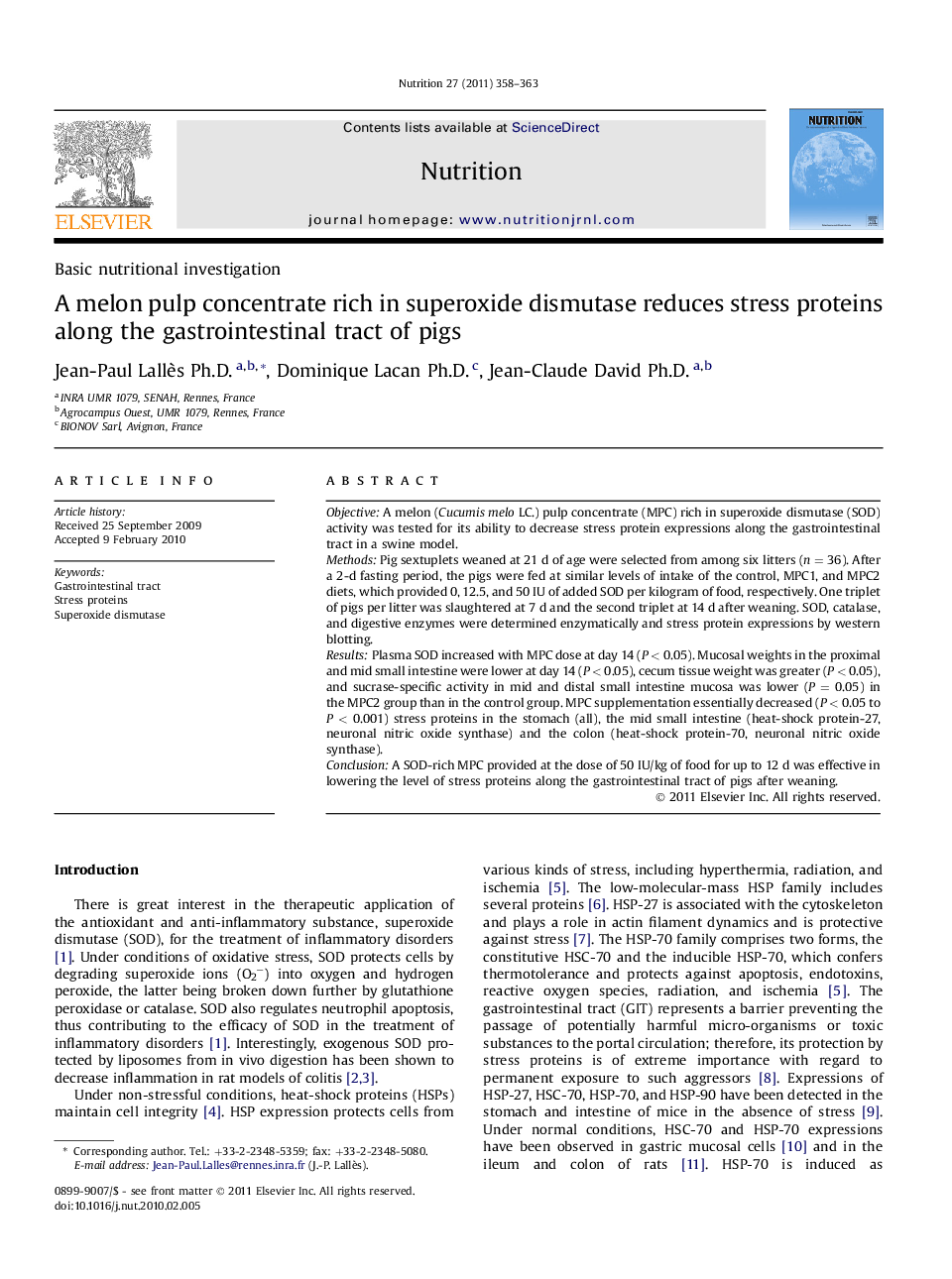| Article ID | Journal | Published Year | Pages | File Type |
|---|---|---|---|---|
| 3276602 | Nutrition | 2011 | 6 Pages |
ObjectiveA melon (Cucumis melo LC.) pulp concentrate (MPC) rich in superoxide dismutase (SOD) activity was tested for its ability to decrease stress protein expressions along the gastrointestinal tract in a swine model.MethodsPig sextuplets weaned at 21 d of age were selected from among six litters (n = 36). After a 2-d fasting period, the pigs were fed at similar levels of intake of the control, MPC1, and MPC2 diets, which provided 0, 12.5, and 50 IU of added SOD per kilogram of food, respectively. One triplet of pigs per litter was slaughtered at 7 d and the second triplet at 14 d after weaning. SOD, catalase, and digestive enzymes were determined enzymatically and stress protein expressions by western blotting.ResultsPlasma SOD increased with MPC dose at day 14 (P < 0.05). Mucosal weights in the proximal and mid small intestine were lower at day 14 (P < 0.05), cecum tissue weight was greater (P < 0.05), and sucrase-specific activity in mid and distal small intestine mucosa was lower (P = 0.05) in the MPC2 group than in the control group. MPC supplementation essentially decreased (P < 0.05 to P < 0.001) stress proteins in the stomach (all), the mid small intestine (heat-shock protein-27, neuronal nitric oxide synthase) and the colon (heat-shock protein-70, neuronal nitric oxide synthase).ConclusionA SOD-rich MPC provided at the dose of 50 IU/kg of food for up to 12 d was effective in lowering the level of stress proteins along the gastrointestinal tract of pigs after weaning.
